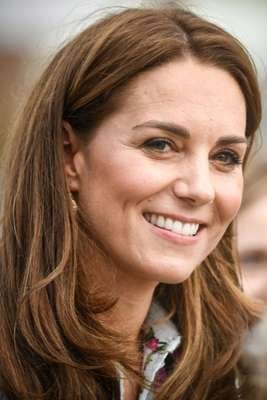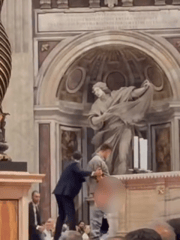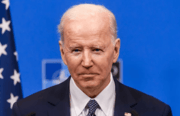'Toxic' conspiracy theory speculates about Princess Catherine's recent comeback
By
Danielle F.
- Replies 41
The world of royalty often appears as a fairytale from the outside.
However, even the most enchanting stories have their dark chapters.
Catherine, the Princess of Wales, recently made an appearance in the public eye.
With her re-emergence, a disturbing and unfounded theory began to circulate on social media platforms, casting a shadow over her comeback.
After a six-month hiatus from public duties, Princess Catherine's presence at the Trooping the Colour sparked a flurry of online speculation.
Some social media users concocted a narrative that the Princess's absence was not due to her battle with cancer, as was publicly shared, but rather to conceal a cosmetic facelift.
They point to her healthy appearance and lack of visible hair loss as 'evidence' of their claims.
This toxic rumour mill was deemed disrespectful to the Princess of Wales but also to those genuinely battling cancer and the harsh realities of chemotherapy.
It's a reminder that the internet is a double-edged sword: a place of connection and community, yet also a breeding ground for misinformation and cruelty.
However, Prince Harry and Meghan Markle were vocal advocates against online hate and misinformation.
Prince Harry wrote several essays and interviews on the subject.
In an essay for Fast Company, he said that 'the digital landscape is unwell' and that social media has contributed to 'a crisis of hate, a crisis of health, and a crisis of truth'.
The Sussexes' charitable endeavours, including the Archewell Foundation and their involvement with The Responsible Technology Youth Power Fund, underscore their commitment to creating a safer digital environment.
Yet, the actions of some purported supporters are in stark contrast to the values Harry and Meghan champion.
This controversy came after a challenging year for Prince Harry, particularly concerning his philanthropic work.
African Parks, a conservation charity closely associated with Prince Harry, faced severe allegations of human rights abuses.
While Harry's role within the organisation has evolved, the accusations have cast a shadow over his efforts in conservation, an area he is deeply passionate about.
The Sussexes' choice to focus on online hate and African conservation was intended to resonate positively with the public.
However, the unforeseen controversies surrounding these causes have complicated their narrative.
The digital realm can be a treacherous landscape.
For public figures like the Royal Family, it's a battleground of reputation, where every appearance and absence can be scrutinised.

What do you think about the challenges public figures face in the digital age? Share your insights with us in the comments section below.
However, even the most enchanting stories have their dark chapters.
Catherine, the Princess of Wales, recently made an appearance in the public eye.
With her re-emergence, a disturbing and unfounded theory began to circulate on social media platforms, casting a shadow over her comeback.
After a six-month hiatus from public duties, Princess Catherine's presence at the Trooping the Colour sparked a flurry of online speculation.
Some social media users concocted a narrative that the Princess's absence was not due to her battle with cancer, as was publicly shared, but rather to conceal a cosmetic facelift.
They point to her healthy appearance and lack of visible hair loss as 'evidence' of their claims.
This toxic rumour mill was deemed disrespectful to the Princess of Wales but also to those genuinely battling cancer and the harsh realities of chemotherapy.
It's a reminder that the internet is a double-edged sword: a place of connection and community, yet also a breeding ground for misinformation and cruelty.
Many of the accounts speculating about the Princess's return claimed to support the Duke and Duchess of Sussex.However, Prince Harry and Meghan Markle were vocal advocates against online hate and misinformation.
Prince Harry wrote several essays and interviews on the subject.
In an essay for Fast Company, he said that 'the digital landscape is unwell' and that social media has contributed to 'a crisis of hate, a crisis of health, and a crisis of truth'.
The Sussexes' charitable endeavours, including the Archewell Foundation and their involvement with The Responsible Technology Youth Power Fund, underscore their commitment to creating a safer digital environment.
Yet, the actions of some purported supporters are in stark contrast to the values Harry and Meghan champion.
This controversy came after a challenging year for Prince Harry, particularly concerning his philanthropic work.
African Parks, a conservation charity closely associated with Prince Harry, faced severe allegations of human rights abuses.
While Harry's role within the organisation has evolved, the accusations have cast a shadow over his efforts in conservation, an area he is deeply passionate about.
The Sussexes' choice to focus on online hate and African conservation was intended to resonate positively with the public.
However, the unforeseen controversies surrounding these causes have complicated their narrative.
The digital realm can be a treacherous landscape.
For public figures like the Royal Family, it's a battleground of reputation, where every appearance and absence can be scrutinised.
Key Takeaways
- The Princess of Wales was subjected to a toxic social media theory concerning her recent return to public life.
- Online assertions suggested that Princess Catherine did not have cancer but was covering up a cosmetic surgery.
- The malicious social media campaign was reportedly propagated by supporters of Prince Harry and Meghan, who were vocal advocates against online hate and disinformation.
- The conspiracy theory followed concerns about Prince Harry's philanthropic work, as a charity he's worked with recently faced human rights abuse allegations.








